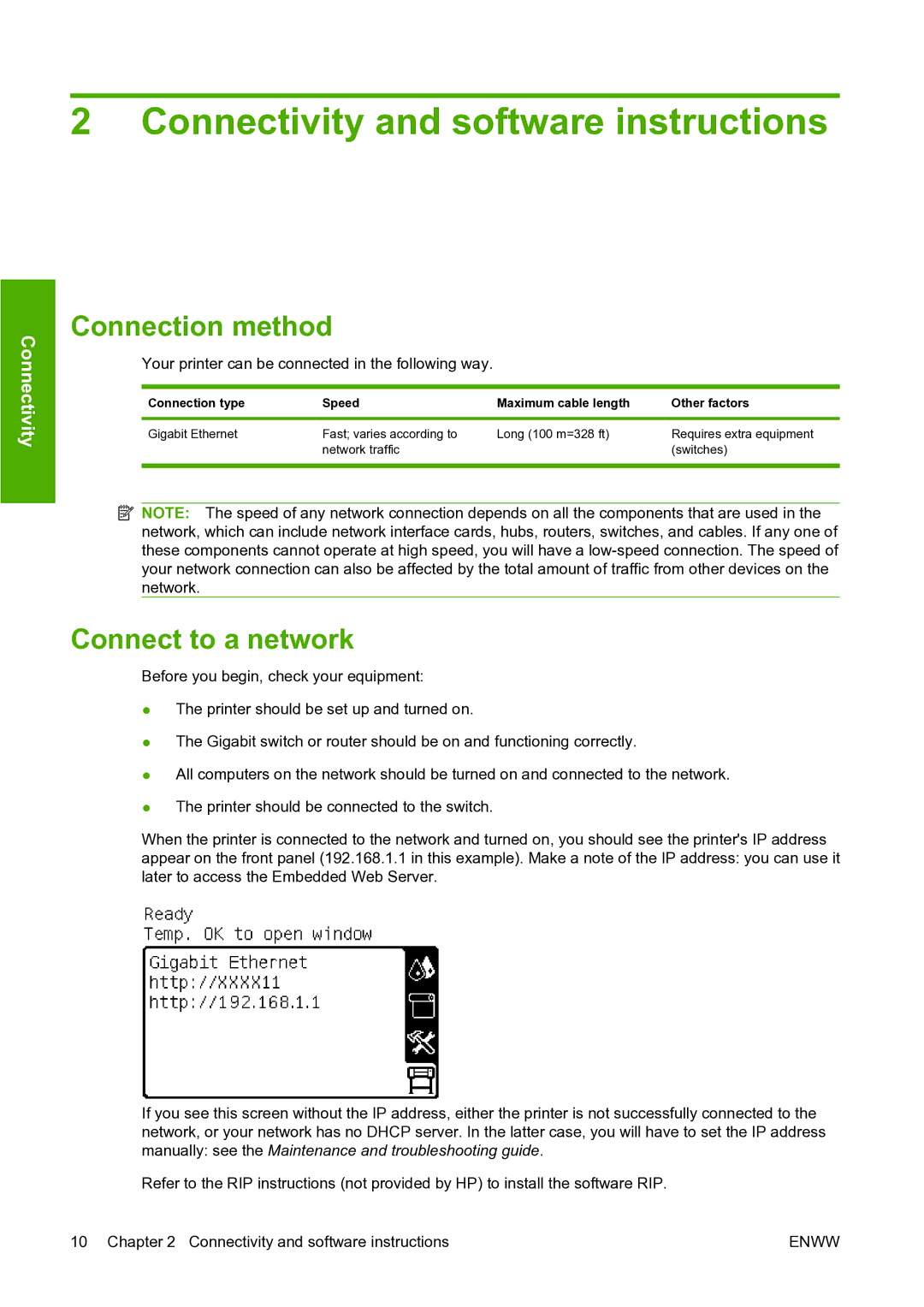
2 Connectivity and software instructions
Connectivity
Connection method
Your printer can be connected in the following way.
Connection type | Speed | Maximum cable length | Other factors |
|
|
|
|
Gigabit Ethernet | Fast; varies according to | Long (100 m=328 ft) | Requires extra equipment |
| network traffic |
| (switches) |
|
|
|
|
![]() NOTE: The speed of any network connection depends on all the components that are used in the network, which can include network interface cards, hubs, routers, switches, and cables. If any one of these components cannot operate at high speed, you will have a
NOTE: The speed of any network connection depends on all the components that are used in the network, which can include network interface cards, hubs, routers, switches, and cables. If any one of these components cannot operate at high speed, you will have a
Connect to a network
Before you begin, check your equipment:
●The printer should be set up and turned on.
●The Gigabit switch or router should be on and functioning correctly.
●All computers on the network should be turned on and connected to the network.
●The printer should be connected to the switch.
When the printer is connected to the network and turned on, you should see the printer's IP address appear on the front panel (192.168.1.1 in this example). Make a note of the IP address: you can use it later to access the Embedded Web Server.
If you see this screen without the IP address, either the printer is not successfully connected to the network, or your network has no DHCP server. In the latter case, you will have to set the IP address manually: see the Maintenance and troubleshooting guide.
Refer to the RIP instructions (not provided by HP) to install the software RIP.
10 Chapter 2 Connectivity and software instructions | ENWW |
